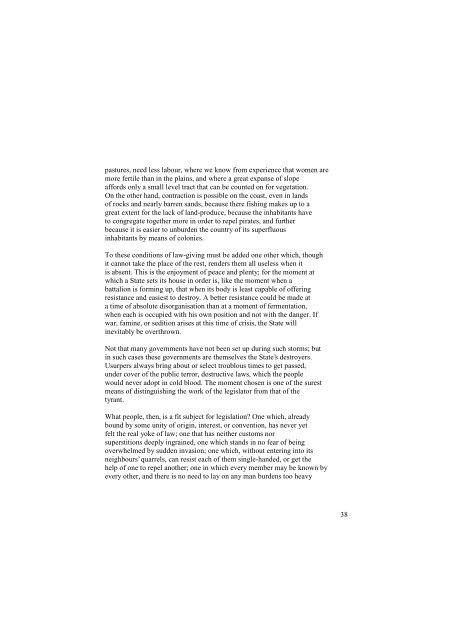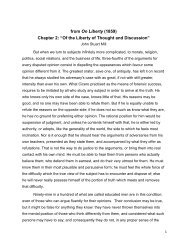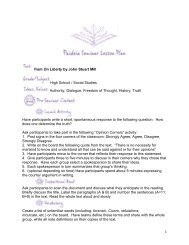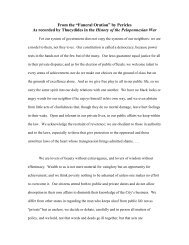Rousseau_contrat-social
You also want an ePaper? Increase the reach of your titles
YUMPU automatically turns print PDFs into web optimized ePapers that Google loves.
pastures, need less labour, where we know from experience that women are<br />
more fertile than in the plains, and where a great expanse of slope<br />
affords only a small level tract that can be counted on for vegetation.<br />
On the other hand, contraction is possible on the coast, even in lands<br />
of rocks and nearly barren sands, because there fishing makes up to a<br />
great extent for the lack of land-produce, because the inhabitants have<br />
to congregate together more in order to repel pirates, and further<br />
because it is easier to unburden the country of its superfluous<br />
inhabitants by means of colonies.<br />
To these conditions of law-giving must be added one other which, though<br />
it cannot take the place of the rest, renders them all useless when it<br />
is absent. This is the enjoyment of peace and plenty; for the moment at<br />
which a State sets its house in order is, like the moment when a<br />
battalion is forming up, that when its body is least capable of offering<br />
resistance and easiest to destroy. A better resistance could be made at<br />
a time of absolute disorganisation than at a moment of fermentation,<br />
when each is occupied with his own position and not with the danger. If<br />
war, famine, or sedition arises at this time of crisis, the State will<br />
inevitably be overthrown.<br />
Not that many governments have not been set up during such storms; but<br />
in such cases these governments are themselves the State’s destroyers.<br />
Usurpers always bring about or select troublous times to get passed,<br />
under cover of the public terror, destructive laws, which the people<br />
would never adopt in cold blood. The moment chosen is one of the surest<br />
means of distinguishing the work of the legislator from that of the<br />
tyrant.<br />
What people, then, is a fit subject for legislation? One which, already<br />
bound by some unity of origin, interest, or convention, has never yet<br />
felt the real yoke of law; one that has neither customs nor<br />
superstitions deeply ingrained, one which stands in no fear of being<br />
overwhelmed by sudden invasion; one which, without entering into its<br />
neighbours’ quarrels, can resist each of them single-handed, or get the<br />
help of one to repel another; one in which every member may be known by<br />
every other, and there is no need to lay on any man burdens too heavy<br />
38











